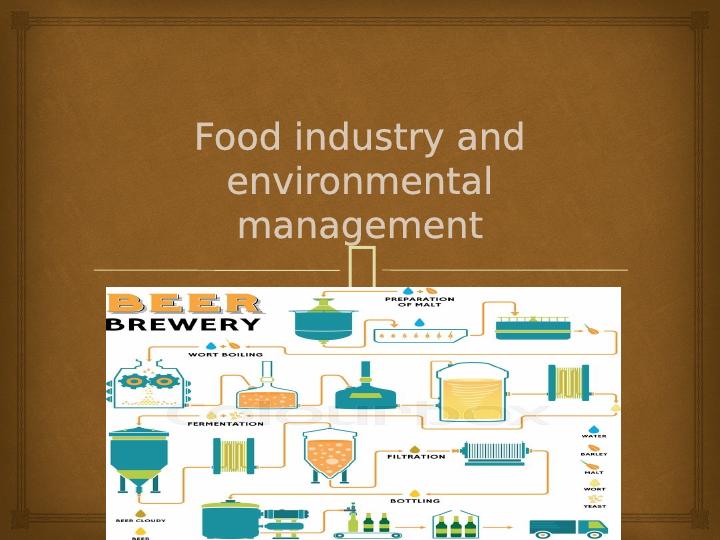Anchor Brewing's Closure: Impact On The Craft Beer Industry

Table of Contents
The Legacy of Anchor Brewing and its Significance
Anchor Brewing's closure marks the end of an era. Founded in San Francisco in 1896, it wasn't just a brewery; it was a pioneer. Anchor played a pivotal role in igniting the American craft beer movement, challenging the dominance of mass-produced lagers and paving the way for the explosion of independent breweries we see today. Its iconic Anchor Steam Beer, a unique California Common style, became a cultural symbol, representing quality, craftsmanship, and a rebellious spirit against industrial brewing.
- First craft brewery to achieve national distribution: Anchor Steam's success opened doors for countless smaller breweries.
- Pioneered specific brewing styles and techniques: Their innovative brewing methods influenced generations of brewers.
- Cultivated a strong brand identity and loyal following: Anchor built a reputation for quality and consistency that resonated deeply with consumers. This brand loyalty is a testament to their legacy.
Immediate Economic Impacts of the Brewery Closure
The closure of Anchor Brewing has had immediate and significant economic consequences. The loss of jobs directly within the brewery is substantial, impacting the lives of numerous employees and their families. Beyond the brewery itself, the ripple effect extends to distributors, suppliers, and related businesses throughout the supply chain. The closure also impacts the local San Francisco economy, where Anchor held a prominent position.
- Number of employees affected by the closure: The exact number varies, but reports indicate significant job losses.
- Potential ripple effects on the local San Francisco economy: The brewery's closure will impact local businesses, tourism, and the overall economic health of the city.
- Impact on related businesses (e.g., hop farmers, distributors): Suppliers and distributors who relied on Anchor for a significant portion of their business will face financial challenges.
Long-Term Implications for the Craft Beer Market
Anchor Brewing's closure highlights the increasing pressures facing the craft beer market. The craft beer industry is experiencing a period of consolidation, with larger companies acquiring smaller breweries. This trend poses challenges for smaller breweries struggling to compete with the marketing power and distribution networks of larger corporations. The closure raises concerns about the future of craft beer innovation and the potential for a homogenization of styles and flavors.
- Increased competition from larger breweries: The craft beer market is becoming increasingly saturated, making it harder for smaller breweries to survive.
- Challenges for smaller breweries in maintaining profitability: Smaller breweries face rising costs and intense competition, making it difficult to maintain profitability.
- Shift in consumer demand and preferences: Consumer tastes are evolving, and smaller breweries need to adapt to these shifts to remain relevant.
- Potential impact on craft beer styles and innovation: The loss of diverse voices in the craft beer industry could lead to a reduction in stylistic innovation.
Lessons Learned and Future of Craft Brewing
Anchor Brewing's closure offers valuable lessons for smaller breweries seeking long-term sustainability. The need for strong branding, effective marketing strategies, and diversification of products and distribution channels is more critical than ever. Building a strong community around the brewery and fostering brand loyalty through meaningful engagement with consumers are crucial for survival in an increasingly competitive landscape.
- Importance of strong brand identity and marketing strategies: A compelling brand story and effective marketing are essential for attracting and retaining customers.
- Need for diversification of products and distribution channels: Reliance on a single product or distribution channel increases vulnerability.
- The value of community engagement and building brand loyalty: Building relationships with local communities and fostering a strong sense of brand loyalty creates resilience.
Conclusion: The End of an Era: Reflecting on Anchor Brewing and the Future of the Craft Beer Industry
Anchor Brewing's closure represents the end of an era, a significant loss for the craft beer industry and a sobering reminder of the challenges facing smaller breweries. The immediate economic impacts are substantial, but the long-term implications for the market are even more profound. The future of craft brewing requires adaptation, innovation, and a renewed focus on building strong brands, fostering community engagement, and diversifying both product offerings and distribution channels. Let's support local craft beer, celebrate the legacy of Anchor Brewing, and ensure the future of craft brewing remains vibrant and diverse. Support your local craft brewery and help shape the future of craft brewing—let's honor Anchor Brewing's legacy by championing the next generation of craft beer innovation.

Featured Posts
-
 Us Tariff Fallout Strategies For Increased Canada Mexico Trade
May 27, 2025
Us Tariff Fallout Strategies For Increased Canada Mexico Trade
May 27, 2025 -
 Abd Vergileri Avrupa Merkez Bankasi Nin Kritik Uyarisi Ve Oenlemler
May 27, 2025
Abd Vergileri Avrupa Merkez Bankasi Nin Kritik Uyarisi Ve Oenlemler
May 27, 2025 -
 Onovlennya Spisku Viyskovoyi Dopomogi Ukrayini Vid Nimechchini
May 27, 2025
Onovlennya Spisku Viyskovoyi Dopomogi Ukrayini Vid Nimechchini
May 27, 2025 -
 Ncaa March Madness Music Festival 2024 Lineup Complete Artist List
May 27, 2025
Ncaa March Madness Music Festival 2024 Lineup Complete Artist List
May 27, 2025 -
 Fans Rally To Gwen Stefani Amidst Faith Based Criticism
May 27, 2025
Fans Rally To Gwen Stefani Amidst Faith Based Criticism
May 27, 2025
